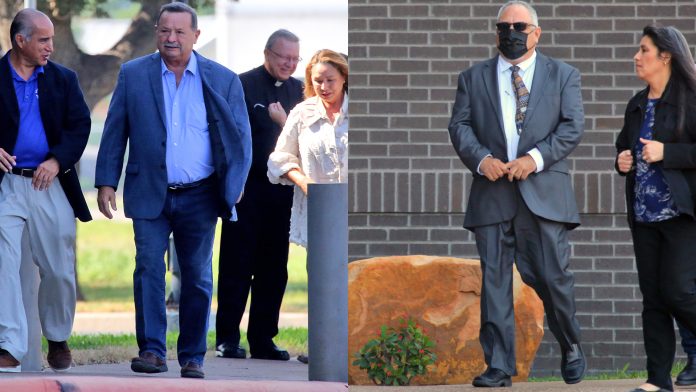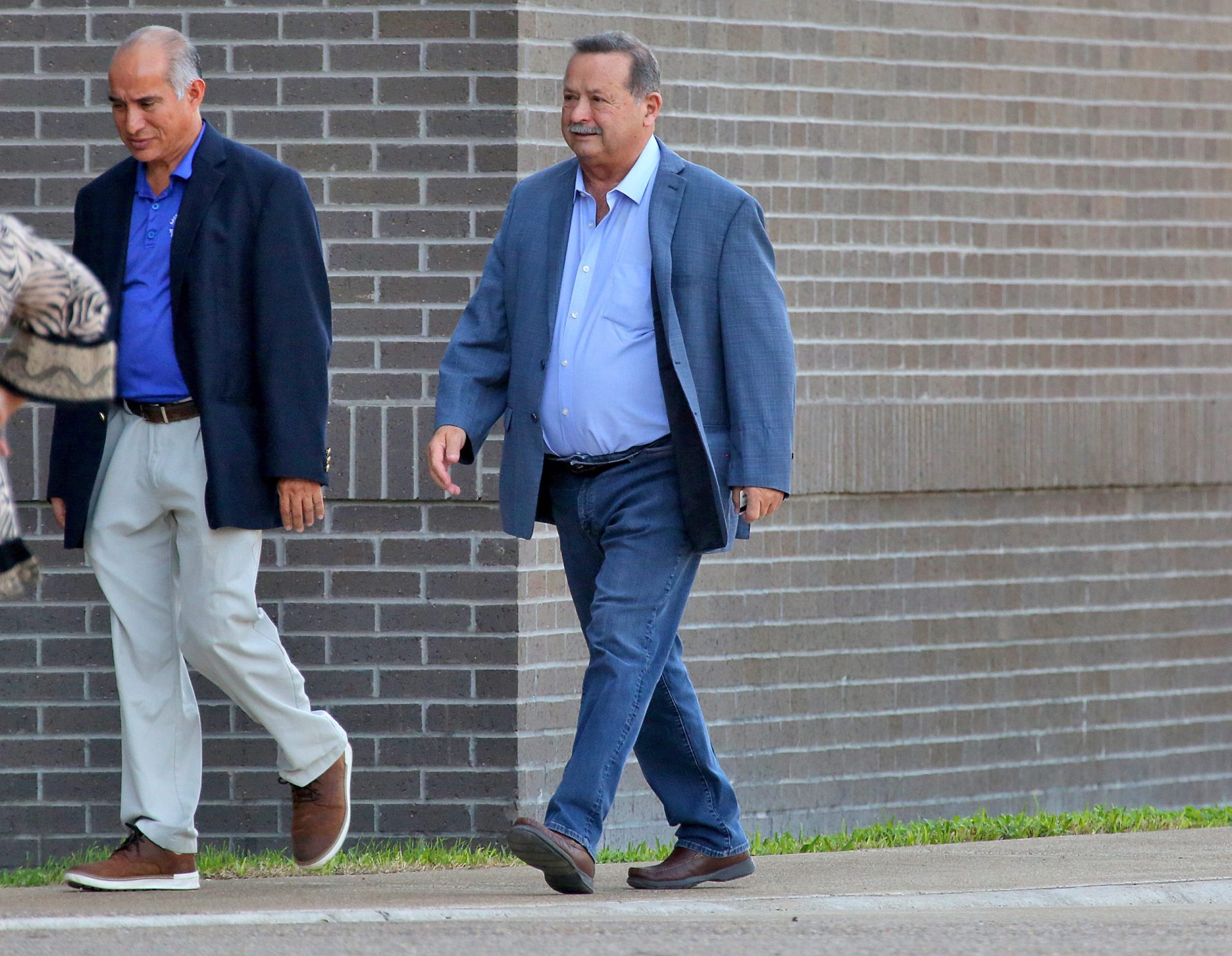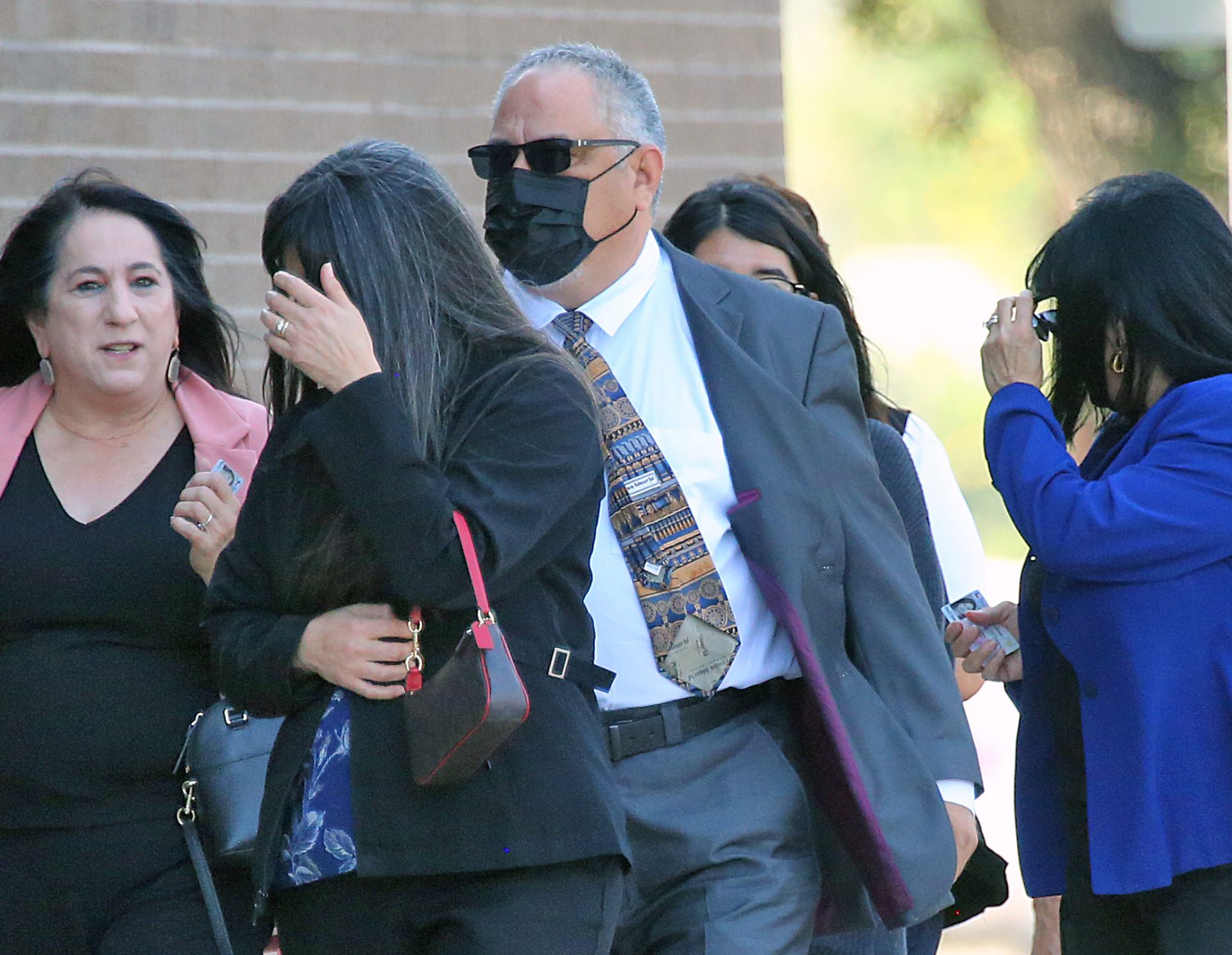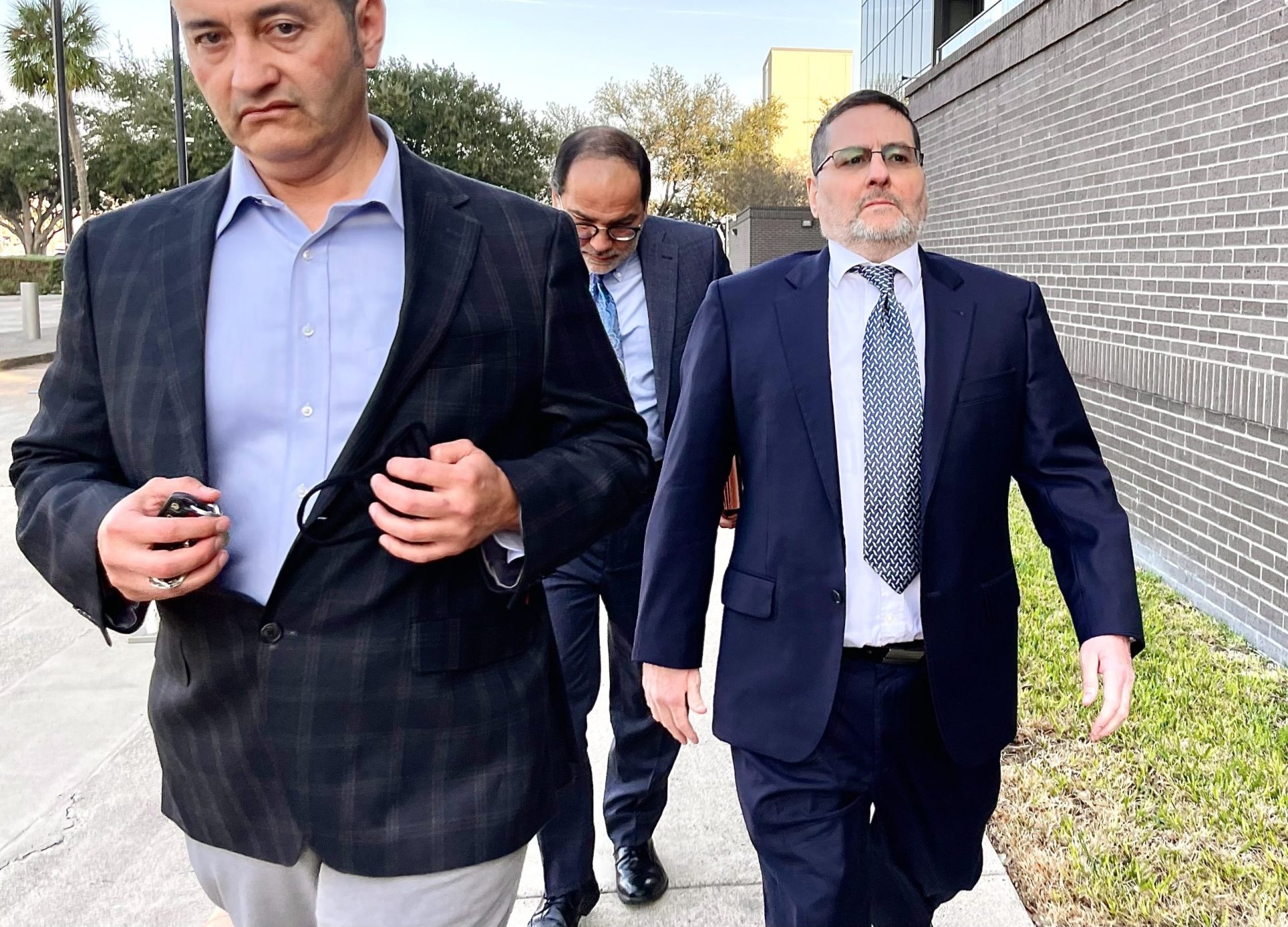
|
Only have a minute? Listen instead
Getting your Trinity Audio player ready...
|
A federal appeals court has upheld the convictions and sentences of two former Mid-Valley public officials who were found guilty of defrauding the city of Weslaco out of $42.5 million during the rehabilitation of the city’s water and wastewater infrastructure.
In October 2022, a federal jury found Arturo “A.C.” Cuellar, the former Hidalgo County Precinct 1 commissioner, and Ricardo “Rick” Quintanilla, a Weslaco businessman, guilty of a combined 70 counts of conspiracy to commit wire fraud, wire fraud, money laundering and bribery.
In January 2023, U.S. District Judge Micaela Alvarez sentenced Cuellar to 20 years, and Quintanilla to nearly 17 years in federal prison. The judge further ordered the two men to pay millions of dollars in restitution to the city of Weslaco, to forfeit the bribe proceeds they had received during the years-long scheme, and to pay hefty fines.
Not long after learning their punishment, the two defendants appealed both their convictions and their sentences, making a number of claims including that a corrupt prosecution had overstepped its authority, to challenging the judge’s impartiality, to the intimidation of witnesses.
During oral arguments in July, the pair’s defense attorneys also raised a new point of argument — one spurred by a recent decision by the U.S. Supreme Court, which held that certain tit-for-tat transactions don’t qualify as bribery, which is illegal, but instead as a gratuity, which is not.
On Friday, however, the three-judge panel that heard those arguments found them, whole cloth, to be bunk.
“This was a well-tried case by the district court. The judgments of conviction and sentence are AFFIRMED,” U.S. Circuit Judge Jerry E. Smith stated on behalf of the panel in an opinion handed down on Friday.
The 35-page opinion is a scathing rebuke of the challenges Cuellar and Quintanilla’s attorneys presented at appeal, and repeatedly calls into question the attorneys’ understanding of the law.
“Each issue is either forfeited, not meritorious, or both,” the opinion’s opening paragraph reads.
Cuellar and Quintanilla each appealed their convictions and sentences separately; however, the two matters were later consolidated and argued together.

As the appellate judges note in their opinion, Cuellar and Quintanilla presented nine primary arguments “in name and many more in fact” for why their convictions should be reconsidered.
But repeatedly, the judges found that the issues were improperly raised, were not supported by corroborating evidence, or that the case law used to justify the defendants’ arguments instead served to further buttress the prosecution.
For instance, Cuellar argued that the jury had convicted him after prosecutors had improperly changed the indictment to widen its scope of allegations.
The appeals court, however, found the defense’s arguments in that regard to be muddy and based on an irrelevant legal argument — one that had the appellate judges refusing to parse the nature of the argument.
“If a defendant appeals the sufficiency of the indictment, then we will consider the sufficiency of the indictment. We will not use a scalpel to extract whatever latent independent arguments parties inconspicuously smuggle in,” the opinion states.
Cuellar and Quintanilla also tried to argue that federal prosecutors moved the goal posts midway through the case.
Initially, the indictment alleged that Cuellar, Quintanilla and others had participated in a single conspiracy involving no-bid contracts, kickbacks and bribes — some allegedly funneled, in part, through an attorney trust account of a fourth co-defendant.

But by the time a jury was seated in mid-October 2022, some of those allegations had been removed from the indictment — including that fourth defendant, who was dismissed from the case.
Prosecutors had further narrowed the scope of their allegations by trimming down the timeline they claimed the scheme to have occurred.
Cuellar and Quintanilla argued that the changes to the indictment — which were made by prosecutors, rather than via a grand jury — amounted to an impermissible “broadening of the indictment.”
The appellate judges didn’t buy that argument.
“It also seems to be an example where the government shrunk—rather than expanded—the scope of the indictment,” the opinion states.
The defendants made a number of other claims that they argued warranted vacating their convictions, or at the very least, calling for a new trial.
Among them, they claim that Judge Alvarez had a conflict of interest that impacted her impartiality.
Cuellar and Quintanilla also made claims regarding the bribes they accepted — arguing that the citizens of Weslaco did not have a “property interest” in the money that was fleeced from the city.
But again, the appellate judges didn’t mince words in calling their arguments flawed. Indeed, the circuit judges state that the very case law the defendants cite to bolster their arguments, instead, do the opposite.
“Nor does (that case) do defendants any favors,” the opinion states at one point.
And, “That undermines their case,” it states at another point.

Later on, in a section addressing Cuellar’s appeal of the $4.1 million restitution he has been ordered to pay Weslaco — along with Quintanilla and another co-conspirator, former District 2 Weslaco Commissioner John F. Cuellar — the appellate judges are again critical of flawed legal arguments.
“That’s not right,” the judges state.
“AC’s challenge to restitution assumes that the government did not prove a single conspiracy. But the government did so,” they further state.
Finally, the defendants’ attorneys launched a late-breaking argument during July’s oral arguments — one that came just weeks after the Supreme Court overturned a case over what constitutes a bribe.
In that case, Snyder v. United States, the nation’s highest court found that a monetary transaction that occurs “after an official act as a token of appreciation” isn’t a bribe, but is instead a gratuity.
The Fifth Circuit found that last-ditch argument unconvincing, as well.
“Unlike Snyder, this is a case about bribes rather than gratuities, and the jury was instructed to that effect. This case is wholly dissimilar to Snyder … and defendants do little to show otherwise,” the opinion states.



